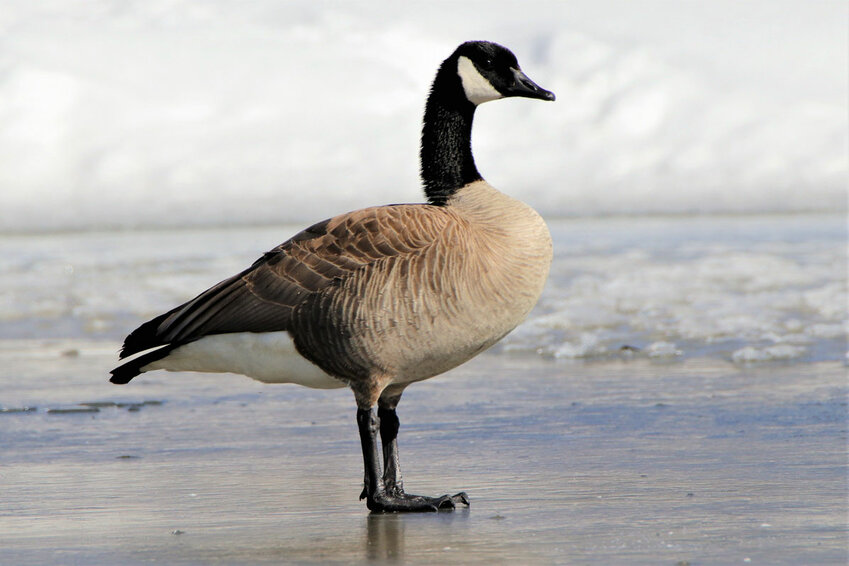
Photo courtesy Charles Martinez
This week’s Bird of the Week, compliments of the Weminuche Audubon Society and Audubon Rockies, is the Canada goose.
It is hard to believe that there was a time when these birds almost disappeared from North America. Now the word ubiquitous best describes their distribution and population explosion across the United States. A long black neck and white cheek patch are distinctive features of Canada geese. The smaller cackling goose has a similar appearance, but their necks are short and bills are stubby.
At one time, most Canada geese populations were migratory and their V-shaped flocks flying overhead symbolized wilderness and the changing of seasons. Though there are still millions of these large birds that migrate long distances to and from arctic breeding grounds, resident populations that stay year-round in urban areas are increasingly common.
With our manicured, fertilized lawns, golf courses and ponds, we have created the ideal landscapes for these tundra nesters to adapt to city life. Canada geese are one of the few birds that can digest grass, and short grass lawns provide them with the open view they need to detect predators. Mowing grass to the water’s edge is like erecting a welcome sign to these birds.
Pairs mate for life and remain together all year. They tend to return to the same nesting sites near water each year, driving intruders away in noisy, splashing fights. In our area, females are incubating eggs by April with the male standing guard nearby.
Goslings, which hatch during May, are able to swim and feed themselves within the first day, but may remain with their parents for a year. In late summer, adult geese shed all of their flight feathers at once and are grounded and quiet for three to five weeks.
With each goose producing a pound of droppings per day, they have become unwelcome guests in our yards and parks. Making our lawns less attractive with longer, poorly fertilized and less tasty grass is one way not to invite them in.
For information on events, visit www.weminucheaudubon.org and www.facebook.com/weminucheaudubon/.